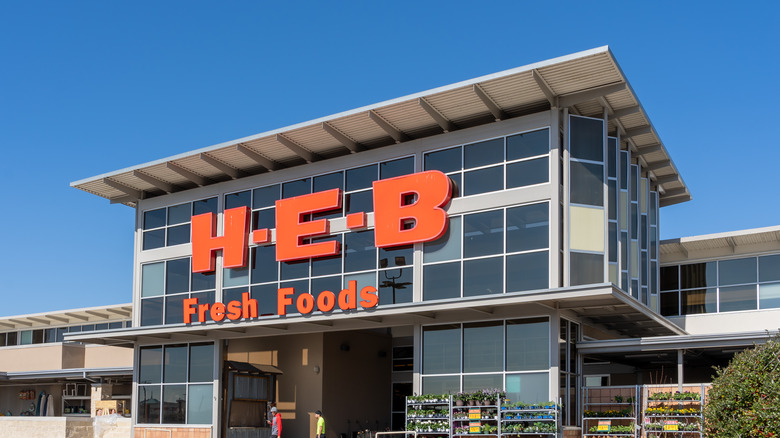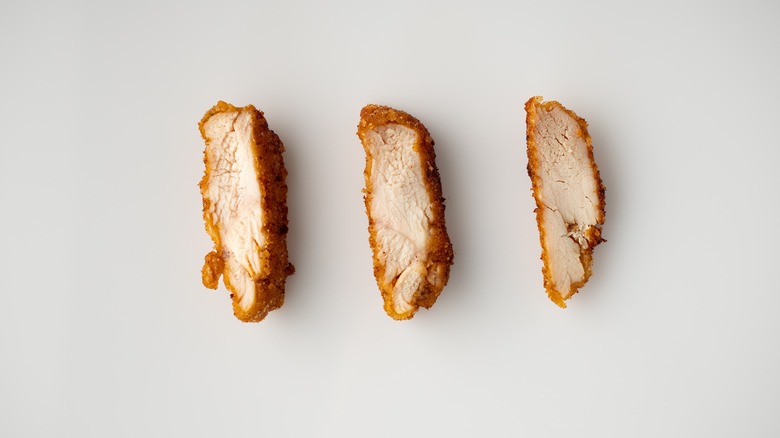If you’re like me chicken nuggets are probably a staple in your freezer – especially if you’ve got kids. They’re quick convenient, and generally crowd-pleasers. But lately, I’ve been hearing some concerns about Tyson chicken nuggets and their safety. Let’s dive into what we know and whether you should be worried about those nuggets in your freezer.
The Truth About Tyson Chicken Nuggets Safety
Tyson Foods is one of America’s largest poultry producers, and their chicken nuggets are found in countless households. But are they actually safe to eat? The short answer is: mostly yes, but with some caveats.
While Tyson chicken nuggets generally adhere to strict regulatory standards set by the USDA and FDA, absolute safety is never 100% guaranteed with any food product. There are several factors that can influence the safety of these popular freezer staples.
Recent Recall Information
In September 2016, Tyson Foods issued a significant recall of approximately 132,520 pounds of fully cooked chicken nugget products due to possible foreign matter contamination. The USDA Food Safety and Inspection Service (FSIS) announced this as a Class I recall, which indicates a high health risk situation.
The recalled products included:
- 5-lb. bags of “Tyson FULLY COOKED PANKO CHICKEN NUGGETS” with a Best If Used By date of July 18, 2017
- 20-lb. bulk packages of “SPARE TIME Fully Cooked, Panko Chicken Nuggets” with a production date of July 18, 2016
According to Tyson Foods, the contamination involved hard plastic material that ranged from 21mm in length and 6.5mm in diameter, likely coming from a plastic transfer belt used in production. While the products passed through metal detectors, the plastic wasn’t detectable by this technology.
Common Safety Concerns With Chicken Nuggets
When we talk about chicken nugget safety, there are several areas worth examining:
1. Bacterial Contamination Risks
Like all chicken products, nuggets can potentially harbor bacteria such as:
- Salmonella
- Campylobacter
- E. coli
Proper cooking is absolutely essential to kill these bacteria Always make sure chicken nuggets reach an internal temperature of 165°F (74°C) to ensure they’re safe to eat
2. Ingredients and Additives
Tyson chicken nuggets, like many processed foods, often contain various additives:
- Sodium phosphates: Used for preservation but can be concerning for people with kidney issues
- MSG (monosodium glutamate): A flavor enhancer that some people may be sensitive to
- Carrageenan: Used to improve texture but may cause digestive issues in sensitive individuals
- Artificial colors: May trigger reactions in some people, particularly children
3. Nutritional Considerations
From a nutritional standpoint, Tyson chicken nuggets provide both benefits and drawbacks:
Benefits:
- Good source of protein (typically 15-21g per serving)
- Contain essential nutrients like vitamin B12, niacin, and phosphorus
- Convenient meal option
Drawbacks:
- Often high in sodium (some products contain over 800mg per serving)
- Typically higher in fat, especially breaded varieties (up to 17g per serving)
- Contain carbohydrates from breading (around 14g per serving in breaded options)
Antibiotics and Hormones: Separating Fact from Fiction
Many consumers worry about antibiotics and hormones in their chicken. Here’s what you should know:
-
Hormones: Despite common misconceptions, hormones are not allowed in poultry production in the United States. This has been illegal since the 1950s! So when you see “no hormones added” on chicken packaging, that’s actually true for ALL chicken products.
-
Antibiotics: This is a more legitimate concern. Conventionally raised chickens have historically received antibiotics to prevent disease and promote growth. In 2015, Tyson announced they would move away from using “human antibiotics” in their chicken by 2017. However, antibiotic resistance remains a concern with conventionally raised poultry.
Making Informed Choices About Chicken Nuggets
If you’re concerned about the safety and quality of chicken nuggets, here are some tips:
How to Ensure Safe Consumption
- Cook thoroughly: Always follow package instructions and cook to an internal temperature of 165°F.
- Check for recalls: Keep an eye on the USDA FSIS website for any active recalls.
- Proper storage: Keep frozen until ready to cook and never leave cooked nuggets at room temperature for more than 2 hours.
- Moderation: Like most processed foods, chicken nuggets are best consumed as an occasional meal rather than a dietary staple.
Healthier Alternatives to Consider
If you’re looking for better options, consider:
- Organic chicken nuggets: These contain fewer additives and come from chickens raised without antibiotics
- Free-range chicken products: Often have a better omega-3 to omega-6 fatty acid ratio
- Making homemade nuggets: Using minimally processed chicken and your own ingredients gives you control over what goes into your food
- Plant-based alternatives: For those looking to reduce meat consumption
What Experts Say About Processed Chicken Products
Health experts and nutritionists generally advise limiting processed meats, including chicken nuggets, due to their association with various health issues when consumed regularly.
The World Health Organization has classified processed meats as Group 1 carcinogens, indicating evidence that they can cause cancer when consumed in excess. Regular consumption has been linked to increased risk of diseases such as cancer, type 2 diabetes, and cardiovascular disease.
However, this doesn’t mean you need to eliminate chicken nuggets entirely. As with most foods, moderation is key.
FAQs About Tyson Chicken Nugget Safety
Q: What are the most common causes of chicken nugget recalls?
A: Foreign materials (like plastic or metal), bacterial contamination, and mislabeling (especially regarding allergens) are the most common reasons for recalls.
Q: How long can cooked chicken nuggets be stored safely?
A: Cooked chicken nuggets should be refrigerated within two hours and consumed within 3-4 days. Always store in an airtight container.
Q: Are air-fried chicken nuggets safer than oven-baked ones?
A: The cooking method doesn’t make nuggets inherently safer as long as they reach 165°F internal temperature. Air frying might reduce fat content slightly compared to deep frying, but the safety depends on proper cooking temperatures.
Q: What should I do if I suspect I have food poisoning from chicken nuggets?
A: Seek medical attention immediately if you experience symptoms like nausea, vomiting, diarrhea, or fever after eating chicken nuggets. Report the incident to your local health department and keep any remaining product for potential testing.
The Bottom Line
Tyson chicken nuggets, when properly cooked and consumed in moderation, can be part of a balanced diet. They provide protein and essential nutrients but also come with additives, sodium, and processed ingredients that may be concerning to some consumers.
While there have been recalls in the past, Tyson and other major food producers operate under strict food safety regulations. Your best approach is to stay informed about recalls, cook products thoroughly, and consider chicken nuggets an occasional convenience food rather than a dietary staple.
What’s your experience with Tyson chicken nuggets? Have you ever encountered quality issues, or do they remain a trusted standby in your home? I’d love to hear your thoughts!

93,697 pounds of fresh meat in 2022

Tyson again had to deal with meat contaminated with foreign matter in 2022, only this time it was due to an unidentified mirror-like material that had been found in products. The recall involved three specific sizes of ground beef chubs (beef sold in tube form) that were sold under the H-E-B and Hill Country Fare brand names at H-E-B stores in Texas. Consumers told Tyson Fresh Meats that theyd found this material in the beef theyd purchased.
One of the USDAs main concerns was that people might have had these chubs stored in their freezers and not realize that there was a recall targeting the products. As you can guess, the inedible — not to mention mysterious — nature of the material made this recall a priority and garnered it a Class I designation. Tyson and the USDA worked to alert as many consumers as possible, along with ensuring that all affected stores removed the product from shelves as quickly as possible. Consumers were told to discard the meat or return it at the store.
3 million pounds (approximate) of cooked chicken products in 2001

If youve ever wondered if your fully cooked chicken products were actually cooked through, you might not want to read this next section. Back in 2001, Tyson had to recall about 2.3 million pounds of cooked chicken products because customers had complained the chicken was underprocessed. In other words, they alleged that it was undercooked. Thats not something you want to find when preparing a cold chicken salad, as raw chicken can be the source of dangerous pathogens such as salmonella.
What happened was that the companys cooked tenderloins and breast strips were processed in such a way that larger pieces may have overlapped with other pieces or become folded, resulting in undercooked spots. If youve bought fully cooked chicken in bags before for use in things like salads and sandwiches, you know those pieces arent necessarily reheated — and theyre often used with little inspection. So, its vital that these fully cooked pieces are properly processed at the factory, from cooking to cooling. Thankfully, Tyson hadnt received any reports of illness due to the undercooked pieces, likely in part because the problem was restricted to one processing plant.
